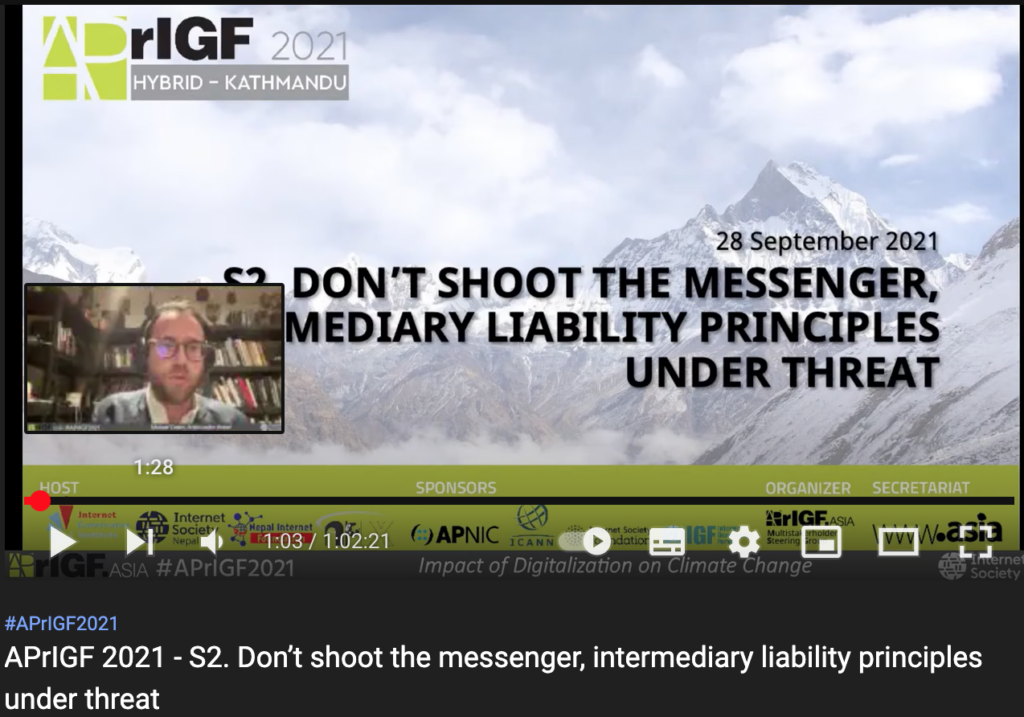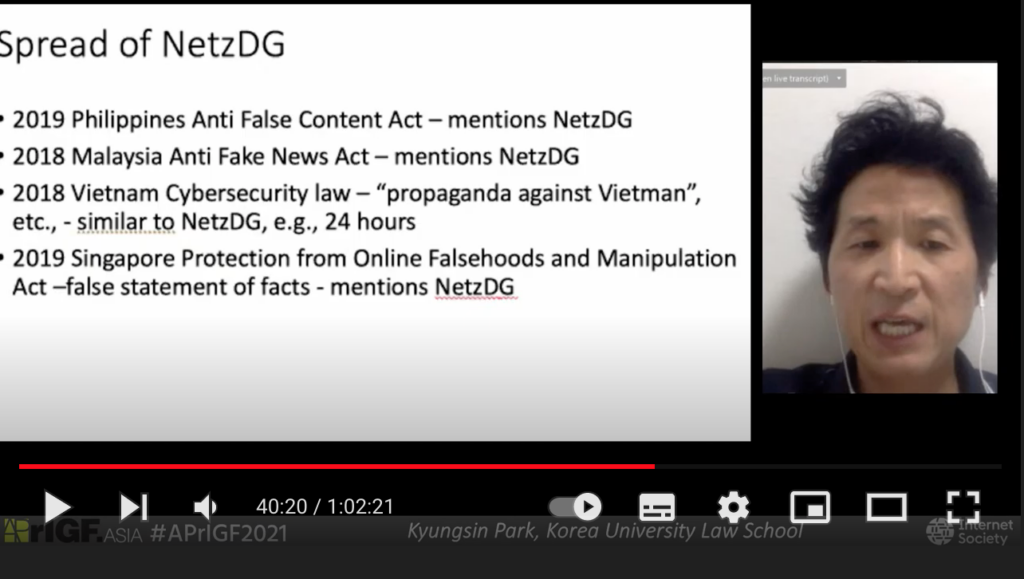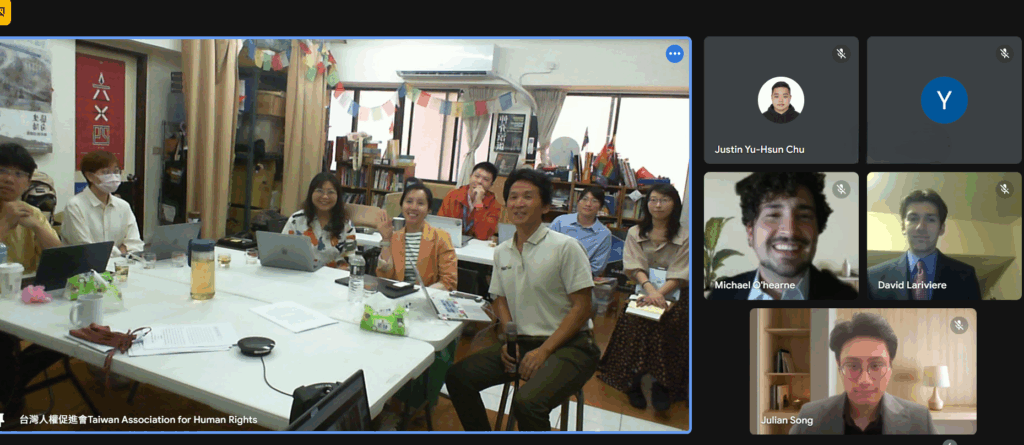Don’t shoot the messenger, intermediary liability principles under threat


APrIGF 2021, September 28, 07:50 – 08:50 UTC
https://proposals.aprigf.asia/
Intermediary liability principles are important for protecting innovation and internet freedom. The UN Special Rapporteur on the Freedom of Expression notes that heavy fines and imprisonment on Internet intermediaries can have a ‘significant chilling effect on freedom of expression.’ The Manila Principles on Intermediary Liability outlines that intermediaries should be immune from liability for third-party content and should never be required to proactively monitor content. However, across the region we have witnessed a growing assault on such principles. In February 2021, India announced new regulations under the Information Technology Act targeting internet intermediaries. The Information Technology Act already carries a punishment of fines and a prison term up to seven years if intermediaries fail to comply. Malaysia, in February, convicted online news outlet Malaysiakini of contempt of court and imposed an excessive fine over third-party comment. In March, Malaysia passed an Emergency Ordinance which further fails to distinguish between content producers and intermediaries in introducing strict takedown notices and punishments for failure to remove. Indonesia has also enacted regulations targeting intermediaries in violation of these principles. The panel will introduce international intermediary liability principles and explore the challenges of their implementation in Asia Pacific, ending with concrete recommendations.
The panel addresses all APrIGF thematic tracks of inclusion, sustainability, and trust. The denial of such protections, as UN human rights experts and others have noted, risks limiting diversity and equitable access, as certain platforms may be punished for the opposing or marginalized voices they host. Intermediaries that can be held accountable for what third-parties post will be less hospitable as hosts for innovation. And governments that impose harsh laws in violation of intermediary liability principles violate digital and human rights, and impose content moderation requirements that increase the risks of self-censorship. The panel addresses these interconnected challenges and highlights recommendations for how such principles should be protected to ensure inclusion, sustainability, and trust online. A lot of the discussion on intermediary liability has come from the United States Section 230 of the Communications Decency Act, but there has been less discussion in Asia Pacific. Indeed, human rights and freedom of expression lawyers representing those targeted in violation of such principles often don’t even raise them in their defense, for lack of awareness. This was the case with Malaysiakini for example. Expanding awareness in Asia Pacific will directly relate to APrIGF’s goals of promoting internet governance grounded in international norms.
| Name | Designation | Organization | Economy of Residence | Stakeholder Group | Gender | Status of Confirmation | |
|---|---|---|---|---|---|---|---|
| Moderator (Primary) | Michael Caster | Asia Digital Program Manager | ARTICLE 19 | Thailand | Civil Society | Male | Confirmed |
| Moderator (Back-up) | Jenny Domino | Associate Legal Advisor | International Commission of Jurists | Philippines | Civil Society | Female | Confirmed |
| Speaker 1 | Premesh Chandran | CEO and co-founder | Malaysiakini | Malaysia | Press \/ Media | Male | Confirmed |
| Speaker 2 | Damar Juniarto | Executive Director | SafeNet | Indonesia | Civil Society | Male | Confirmed |
| Speaker 3 | Kyungsin Park | Professor of Law, Executive Director | Korea University Law School, Open Net Association | South Korea | Academia | Male | Confirmed |
| Speaker 4 | Vrinda Bhandari | Of-Counsel | Internet Freedom Foundation | India | Civil Society | Female | Confirmed |
The recording of the session is here: https://youtu.be/ji_
K.S. Park’s presentation is below: “Erosion of Intermediary Liability Safe Harbor in Asia and the role of Germany’s NetzDG.”


0 Comments